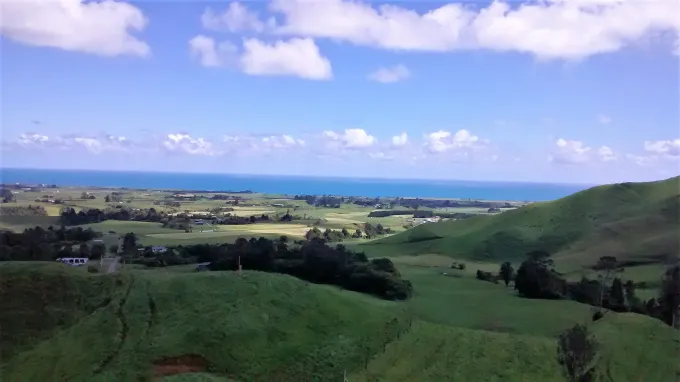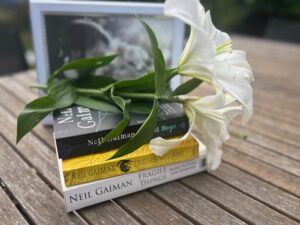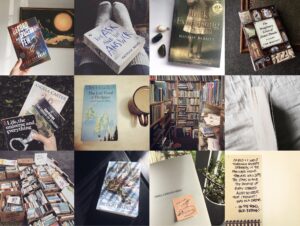I’ve known for a while now that my biggest weakness when it comes to writing is in the detail. I mumble through stories using broad strokes rather than a fine-haired brush, and in doing so, I lose something.
Part of me thought none of these details mattered because they have no relevance to readers outside our country, and when most of those in the book biz will tell you that there is no market for adult genre fiction in New Zealand (written by New Zealanders) anyway, one must try and think about the global market.
But I was also scared of pinning things down too much in part due to my overwhelming fear of doing my culture wrong (I push through those fears, but that doesn’t mean I have less anxiety about them) or doing anything wrong, really. That risk of stuffing something up, offending someone, getting the facts wrong held me back and meant I skimmed over the top of things rather than going deeper. Which is where research comes into play in a big way, and I’ve gotten so much better at that in the last few months.
What I’ve come to see is that the importance of the specifics lies in their relevancy to me and to my characters. I’ve learned that when I imbue my work with these details it helps every part of my story come alive.
‘What I’ve come to see is that the importance of the specifics lies in their relevancy to me and to my characters.’
Because it’s the little things that matter.
When I was reading Bugs, by my mentor, Whiti Hereaka, I was struck by how well she does this. There was a moment when reading that it finally hit me how I could colour my world without overdoing it. And it was something so simple but utterly beautiful to me: when Bugs is learning how to clean a hotel room there is a mention that they clean the taps then wipe them down with a dry cloth so there are no water marks.
See, simple right? But it made it real. I knew that hotels always look perfect, but it had never crossed my mind to think how they did that. This was a touch of insight that made this scene real to me. Like I was on the inside. Like the characters were real people with real knowledge.
I want my stories to feel real too, even when I’m writing about ghosts, possession, aliens or gods. And it’s particularly important for me that I do this with Butcherbird, but at the same time, that feeling of importance might be what makes it hard to do.
‘I want my stories to feel real too, even when I’m writing about ghosts, possession, aliens or gods.’
You see, I set this book on a fictional version of my grandparent’s farm. It was a farm I spent a lot of time on, nestled at the foot of my maunga, Taranaki. And so, it should be easy to make things real – I’m not writing about my family (Rose is definitely not my grandmother; I am not Jena), but I know what growing up in the country is like. I know the curves and folds of the land, the feel of the air, how cold the rivers coming off the mountain can be, the taste of water that comes from a spring and not town supply.
And yet almost none of those things are present in this book. Not even my mountain.

When I was halfway through writing Butcherbird, my Nana had a massive stroke. We rushed home from Paraparaumu to be with her, but she never regained consciousness. I wrote bits of Butcherbird while holding her hand during her last days.
Writing this book gave me something to focus on that wasn’t the fact Nana was dying. She is so much a part of this book because of time spent by her side, both on her death bed and throughout my life, and because I was writing it as a love letter to that place we called home.
But it’s not home any more, and she’s not with us. Hasn’t been for almost a year now.
It took me another twenty-four days to finish the book, but I did, even though it was so freaking hard and I had to face death again within the pages. She was a pragmatic woman, and I could hear her telling me to just get on with it. And I did. I got on with it. I finished the book. And now, here I am, revising the book. And while sometimes it hurts to dig deep, I know that I have to reconnect to my initial desire for this work, and that’s going to require me to get specific, to get detailed.
And, yeah, I have some resistance to that. Because it still hurts. I miss her. And sometimes digging deep makes that ache a little harder to bear.
But specificity is important.
It’s vital.
When we were at the National Writers Forum in September this was one of the key things I took away from it – it turns out that the books from New Zealand authors best received both here and around the world were those deeply grounded in New Zealand’s culture, land and experiences. People want those details; they want our flavour.
‘… the books from New Zealand authors best received both here and around the world were those deeply grounded in New Zealand’s culture, land and experiences.’
I listened carefully to the keynote speakers over that weekend: Lani Wendt Young, Dr Anita Heiss and John Marsden. All spoke eloquently; their experiences and passion for writing blooming in our imaginations as they spoke due to the details they used to richly colour their lives.
It’s very clear to me now that the broad strokes I mentioned earlier aren’t doing me any favours. More importantly, it’s not doing my story any favours either. I’ve been bashing my head against this lesson for what feels like years now, but I think I’m almost there. I think I’m finally brave enough to dig deep and do the things that need to be done.
The writing life is a series of lessons – there are always more things to be learnt – but this particular one has been a mountain I’ve failed to climb many times before. It’s well and truly time I conquer it.





